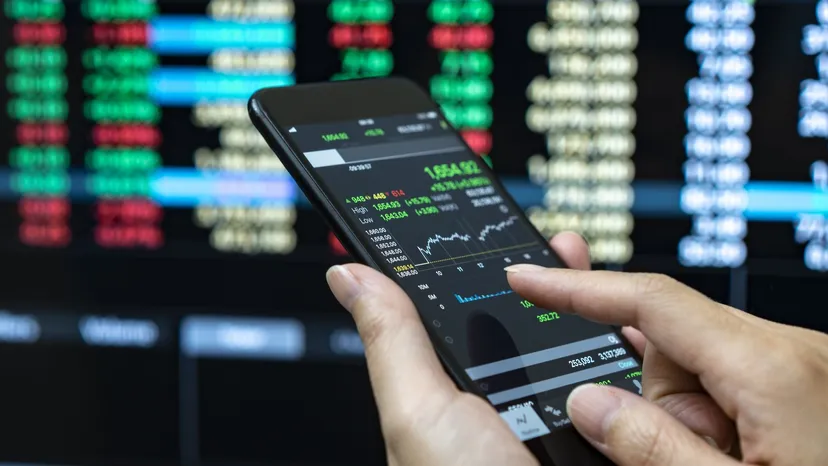Introduction
Stock trading is a highly competitive market that involves millions of people. It’s important for traders to be aware of the psychology behind their decisions so they can make better decisions and avoid losses.
Stock trading
Stock trading is a way to make money. It’s also a risky way of doing that.
Stock trading can be done through online platforms like eToro, Robinhood and just about any other app that allows you to trade stocks. There are many different ways you can go about this but the simplest way is by buying and selling shares in companies based on their current performance, as well as its future prospects for growth and income potential.
The Psychology of Stock Trading
If you’re planning on taking up stock trading as a career, it’s important to know that the job is inherently risky. Stock traders need to be aware of their own behavior and emotions while they are trading so they can make better decisions on the fly. They should also be aware of their biases, which can lead them into making poor choices when buying or selling stocks. Finally, they should be mindful of cognitive biases—these mental shortcuts may cause them to make poor decisions but also help them win big when they do win big!
Greed and Fear play a role in stock trading
Greed and Fear play a role in stock trading.
Greed is the emotion that causes you to buy a stock that is too expensive. While greed can be good, it can also lead to losses if you don’t know how to manage your portfolio well. Greed is what drives investors to buy stocks with high growth potential at great prices. The opposite emotion of greed is fear, which causes people not want because their investments may lose value over time due to poor management decisions or bad luck (like market crashes).
Loss Aversion
Loss aversion is the tendency to want to avoid losses more than we want to achieve gains. It’s a psychological phenomenon that can be measured by asking people how much money they would be willing to pay for an opportunity that was sure to give them $100 in one year, but only if they could also guarantee losing $100 in another year. The higher their willingness-to-pay (WTP) number, the more likely it will take place in your stock market simulation.
If you’re interested in learning more about how psychology impacts your trading strategy, check out this article from Forbes: “Why You Shouldn’t Trade Stocks Based on Your Personality.”
Systematic Investing
Buy and hold is a passive investment strategy that involves purchasing stocks at low prices and then holding them until they become more expensive. The name “buy and hold” comes from the idea of buying certain stocks, holding them for some period of time, and then selling them when their price increases. The goal of this type of investing is to minimize risk by choosing investments with low volatility—that is, investments with little or no upward or downward movement over time due to market movements (which can occur for many reasons).
The buy and hold approach can be used in any market environment where there are investors who want to maximize returns without taking unnecessary risks. For example, if you were looking at stock market indices like the S&P 500 or Dow Jones Industrial Average (DJIA), these indexes provide an excellent example because they have historically shown higher returns than other asset classes such as bonds but also carry greater risk if they go down in value instead of up in price when markets go up–as happened during 2008-2009 financial crisis when many investor assets plunged into negative territory overnight due mostly not only bad news about banks’ ability replace losses but also fears about future economic conditions around world causing more trouble down road making Americans stop spending money right away leading businesses across country shutting down employees unable afford living expenses anymore so all businesses closed down except ones who already lost money on something else before going bankrupt themselves making entire society suffer financially while trying not spend too much on anything else besides essentials like food; so companies cut back production costs even though profits weren’t coming through successfully due lack off demand due recessionary conditions affecting economy worldwide which lead many people losing jobs resulting same way suppliers cutting back supply lines which causes consumers panic buying less items per dollar spent within month compared previous year’s spending habits
Stock traders should look out for behavioral problems.
Stock traders should look out for behavioral problems.
Greed and fear are the two most common types of behavior that stock traders should be aware of.
Stock traders can be greedy when they overreact to short-term price movements, which leads them to trade more often than necessary.
Stock traders can also be fearful when they refuse to invest in a certain stock because it has shown signs of volatility or has been beaten down by the market recently, which leads them not only not invest but also sell their position at prices lower than what it was worth before learning about these developments.
Conclusion
When you’re buying and selling stocks, it can be easy to fall into old habits. But if you’ve got a plan and stick with it, you’ll be sure to make more money in the long run. The most successful traders work hard and play smart by keeping an eye out for behavioral problems, like loss aversion. If we all did this together, we could finally take control over our financial futures instead of relying on chance or luck!







